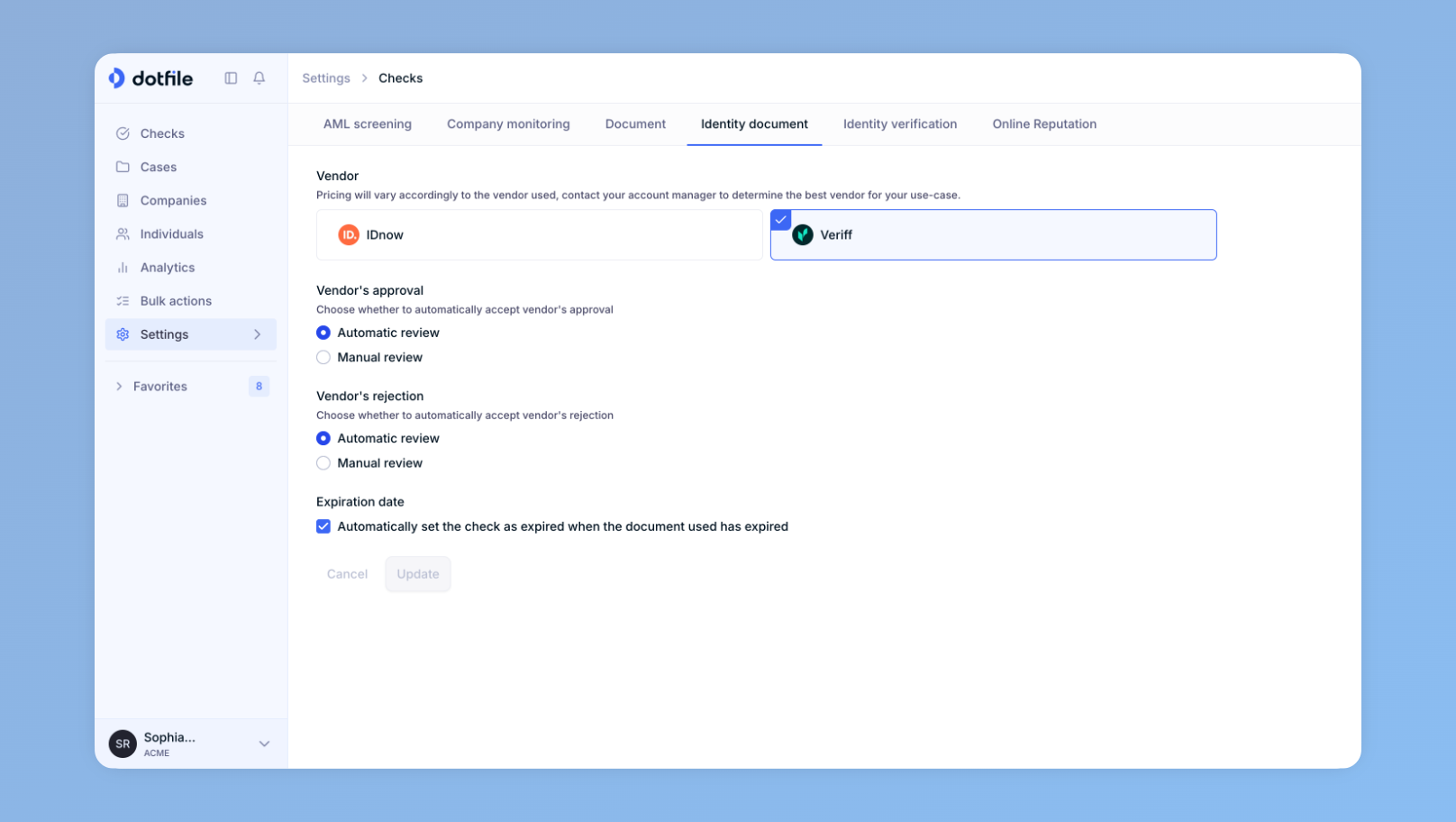Automated ID document check
The automated ID document check consists of analyzing the ID file provided by the user through a series of verifications. The process includes data extraction, comparison with reference (declarative) data, and visual inspection against official templates from various countries.
Configuration
In the settings, under Checks, ID Verification, you can configure the following:
Provider Selection
Choose your preferred provider between IDnow and Veriff.
Validation Pattern
You can define how the system should handle approval and rejection based on the provider’s result:
- Vendor's approval: the check will be automatically approved if the provider approves it.
Switch to Manual approval if you prefer to require manual confirmation for every approval. - Vendor's rejection: the check will be automatically rejected if the provider rejects it.
Switch to Manual rejection if you want a manual review before rejecting or restarting the check.

Coverage
Our document coverage by country may vary depending on the provider, but the following document types are supported worldwide across all countries:
- Passport
- National ID Card
- Driving License
- Residence Permit
Check results
The detailed results of the verification include the following control points, grouped below:
Data Comparison
Compares the information extracted from the ID document with the reference declarative data provided by the user:
- Name (first and last)
- Date of birth
- Document number
Expiration date
Validates that the ID document has not expired.
Specimen verification
Checks whether the provided file is a specimen or sample document, which would render it invalid.
ID acceptance
Ensures that the document is recognized and contains all required elements:
- Document validity (not revoked or blacklisted)
- Presence and successful extraction of all required fields
- Document type acceptance (e.g., passport, ID card, driving license)
ID falsification
Advanced analysis to detect potential forgery or inconsistencies:
- Nationality, issuing country, and issuance date checks
- Model color matching (to expected country-specific templates)
- OCR (Optical Character Recognition) field verification
- MRZ (Machine-Readable Zone) analysis:
- Alignment
- Checksums
- Syntax and expected fields
- Classifier accuracy
- Photo verification:
- Conformity to standards
- Proper positioning and location
Model expiration
Checks whether the document model itself (e.g., an outdated version of a national ID format) is still valid according to official template lifecycles.
Updated 9 days ago
